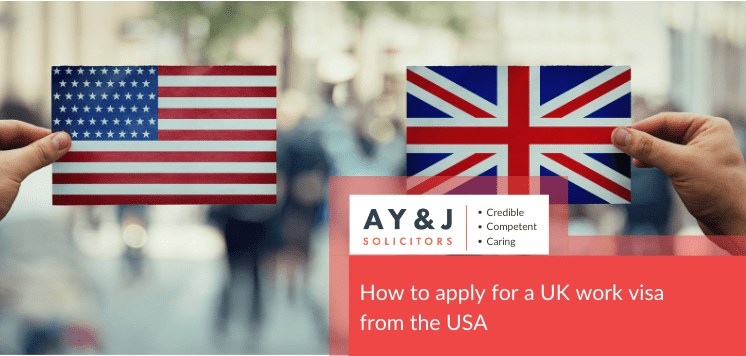Disclaimer: The information in this blog is accurate as of its publication date. Any updates after that date are not reflected here.
Introduction
On 11 April 2022, the Home Office introduced the Global Mobility Route. The Global Mobility Route has 5 subcategories, designed for UK employers to recruit and engage skilled and specialist workers on a non-permanent basis. Most of the routes replace previous immigration categories, that were simultaneously closed on 11 April. One of the routes is completely new. All the new rules and requirements can be found in the Immigration Rules under the new “Appendix Global Mobility Routes”.
An application can be made from outside the UK or from inside the UK (provided the applicant does not have leave as a visitor, Short Term Student, Parent of a Child Student, Seasonal Worker, Domestic Worker or leave outside the Immigration Rules).
None of the routes lead to settlement in the UK.
This blog looks at each of the subcategories, in turn, giving an outline of the requirements.
Table of Contents
Senior or Specialist Worker
This route replaces the Tier 2 (Intra-Company Transfer) route.
The applicant must score “60 points” for sponsorship. This includes:
- 20 points for having a valid sponsorship offer
- 20 points for the job offer being at the correct skill level for sponsorship, which is usually the equivalent of graduate-level or above
- 20 points for the job offer having a salary at or above the correct level (£42,400 per annum or the going rate, whichever is higher. Someone applying as a “high earner” must be paid at least £73,900 per annum).
There is no “English language requirement” for the visa, but the candidate must meet the Financial requirement. That is, they need to have the correct level of maintenance funds in their bank account unless their sponsor has certified maintenance on their Certificate of Sponsorship (entry clearance or leave to remain) or they have lived in the UK for 12 months prior to the (leave to remain) application.
For the employee to score 20 points for sponsorship under this route, they must be working for the “sponsor group”, that is to say, an overseas entity linked by common ownership or control to the UK entity.
If the employee has worked for less than 12 continuous months for the employer, then they must qualify as a “High Earner”, earning at least £73,900 per annum to be eligible for the visa.
High Earners can extend their visa, but cannot be granted leave to remain which would lead to them having permission for more than 9 years in any 10 year period.
All other Senior and Specialist workers cannot be granted leave to remain which would lead to them having permission for more than 5 years in any 6 year period.
When calculating the cumulative periods, time spent on the ICT category will count towards the overall period.
A Senior or Specialist worker can apply for up to 5 years at a time, bearing in mind the restrictions on cumulative periods of leave.
Dependents (partner and under 18 children) can be sponsored under this route, to join or accompany the main applicant to the UK.
Graduate Trainee
The Graduate Trainee route facilitates the transfer of an overseas employee engaged on a graduate training course that should lead to a senior management role or specialist job and who is required to undertake a temporary placement in the UK.
Like the Senior or Specialist worker route, the candidate must score “60 points” for sponsorship. This includes:
- 20 points for having a valid sponsorship offer
- 20 points for the job offer being at the correct skill level for sponsorship, which is the equivalent of graduate-level or above
- 20 points for the job offer having a salary at or above the correct level (£23,100 per annum or the going rate, whichever is higher.).
Also, like the Senior or Specialist Worker route, there is no English requirement and the financial requirement must be met.
The Graduate Trainee cannot be granted leave to remain which would lead to them having permission for more than 5 years in any 6 year period. The visa would be granted for 12 months at a time.
For the employee to score 20 points for sponsorship under this route, they must be working for the “sponsor group”, that is to say, an overseas entity linked by common ownership or control to the UK entity. They must also have been working overseas for the sponsor group for a continuous period of at least 3 months prior to the date of application.
Where there used to be a cap on the number of Graduate Trainees that could be sponsored annually, under the Tier 2 (Intra-Company Transfer) Graduate Trainee route, now there is no limit on the number of CoS the sponsor can assign under this route.
Graduate Trainees can sponsor dependents.
UK Expansion Worker
This route is designed to allow overseas employees to enter the UK to work in support of the overseas company’s expansion to the UK. It should be noted that the overseas company in question must not have started trading yet, in the UK. This route replaces the Representative of Overseas business (sole representative) route.
The candidate must score “60 points” for sponsorship. This includes:
- 20 points for having a valid sponsorship offer
- 20 points for the job offer being at the correct skill level for sponsorship, which is normally the equivalent of graduate-level or above
- 20 points for the job offer having a salary at or above the correct level (£42,400 per annum or the going rate, whichever is higher.).
Unlike the Sole Representative Route, the employee must be directly sponsored by the UK employer. In which case, the business needs to apply from overseas for a “provisional sponsor licence” in order to facilitate the visa application.
To score 20 points for sponsorship, the candidate must have been working overseas for the company, unless they qualify as a “high earner” or are a Japanese national who qualifies under an exemption (UK-Japan Comprehensive Economic Partnership Agreement).
The UK Expansion worker cannot be granted leave to remain that would lead to them having permission under the category for more than 5 years in any 6 year period. The visa would be granted for up to 12 months, at a time, and the applicant cannot have more than 2 years’ continuous leave under the category.
The sponsor can sponsor multiple expansion workers and is not limited to a single representative, like its predecessor.
UK Expansion workers can sponsor dependents.
Service Supplier
This route replaces prior provisions in the International Agreement category and is designed for an overseas worker who works on a temporary basis in the UK as either a contractual service supplier (employed by a service supplying company) or on a self-employed basis. Their UK employment must be covered by one of the UK’s international trade agreements.
The candidate must score “40 points” for sponsorship. This includes:
- 20 points for having a valid sponsorship offer
- 20 points for the job offer being at the correct skill level for sponsorship (there are two possible options)
To gain 20 points for sponsorship, the contract under which the employee will work must be registered with the Home Office, for a service covered by one of the UK’s International Trade Agreements.
The job’s skill level must fall under Option A (eligible roles for sponsorship under the Global Mobility route, which are generally at graduate-level or above) or Option B (the candidate themselves holds a University degree unless the role falls on the list of exemptions, such as fashion modelling).
The employee must have been working for 12 months outside the UK for the service provider and nationality/residence status requirements will apply.
The Service Supplier cannot be granted leave to remain which would lead to them having permission under the category for more than 5 years in any 6 year period. The visa would be granted for up to 6 months or up to 12 months, depending on the nature of their employment and how long they had already spent in the UK, under the route.
There is no English language requirement and the financial requirement must be met.
Service Suppliers can sponsor dependents.
Secondment Worker
This is a completely new route designed for overseas workers working on high-value contracts.
The candidate must score “40 points” for sponsorship. This includes:
- 20 points for having a valid sponsorship offer
- 20 points for the job offer being at the correct skill level for sponsorship
To score 20 points for sponsorship, the sponsor must have a contract, registered with the Home Office. The employee must have worked for the overseas business (with which the UK company has a contract) for at least 12 months. The role must be on the list of eligible roles for sponsorship under the Global Mobility route.
The Secondment worker cannot be granted leave to remain which would lead to them having permission under the category for more than 5 years in any 6 year period. The visa would be granted for up to 12 months, at a time, and the applicant cannot have more than 2 years’ continuous leave under the category.
There is no English language requirement and the financial requirement must be met.
Secondment Workers can sponsor dependents.
Conclusion
The Global Mobility Route gives employers a variety of options to sponsor employees in the UK. The Senior or Specialist worker and Graduate Trainee will normally be a viable option for employers who held a Tier 2 (Intra-Company Transfer) sponsor licence on 10 April 2022, and who wish to continue to recruit and employ overseas workers in their UK branch. Employers looking to start recruiting from their overseas offices can register as a new Global Mobility sponsor. The UK expansion worker will be a feasible option for overseas employees required to set up a UK branch for their overseas employer. However, as this is now a sponsored route, can be granted for 1 year at a time and is not a route to Indefinite Leave to Remain, this option is not as attractive as its predecessor, the Sole Representative route. The Service Supplier route will work similarly to its preceding route (Tier 5 – International Agreement), whilst the new Secondment Worker route will open new options for businesses with high-value international contracts. However, these routes are very niche and relate only to businesses with eligible international contracts, therefore in reality they will not be a relevant option for most businesses.
If you are an existing sponsor and would like to know more about the new routes or are a business interested in applying for a sponsor licence, contact A Y J Solicitors for support. With our expertise, we can guide and advise end-to-end on a successful outcome and help you to reach your aims in Global Mobility.









